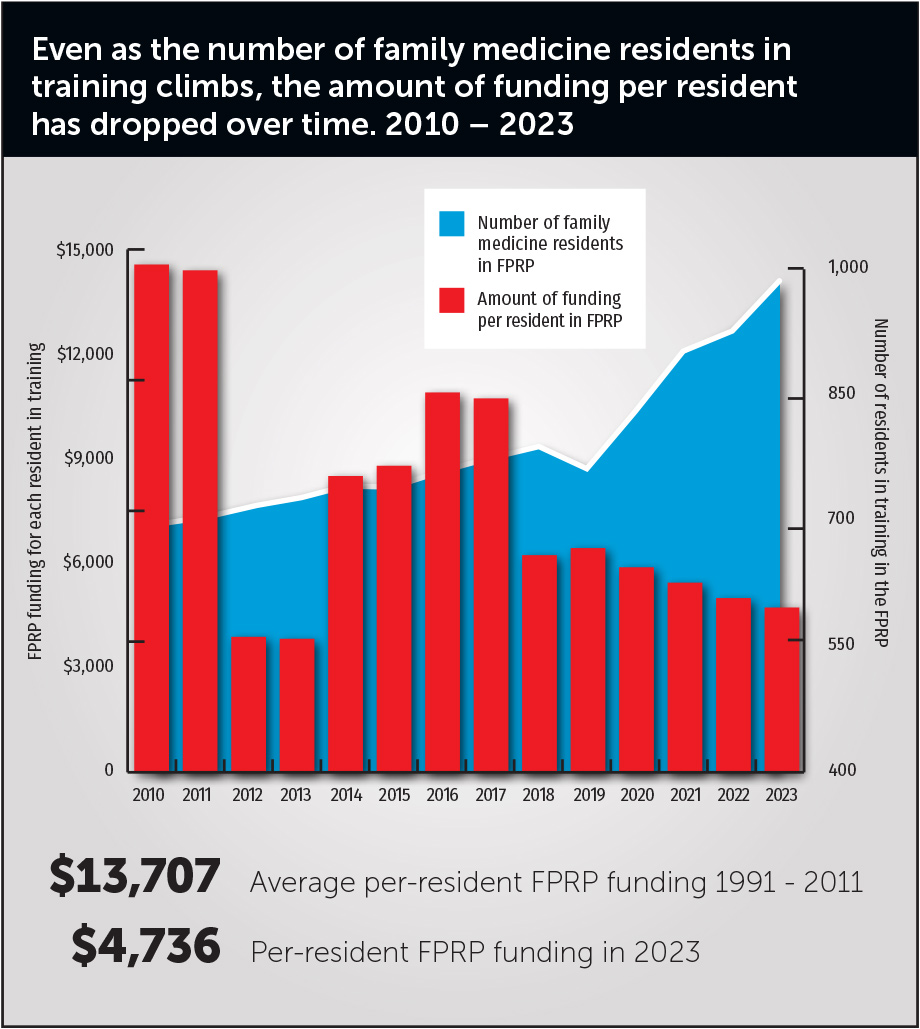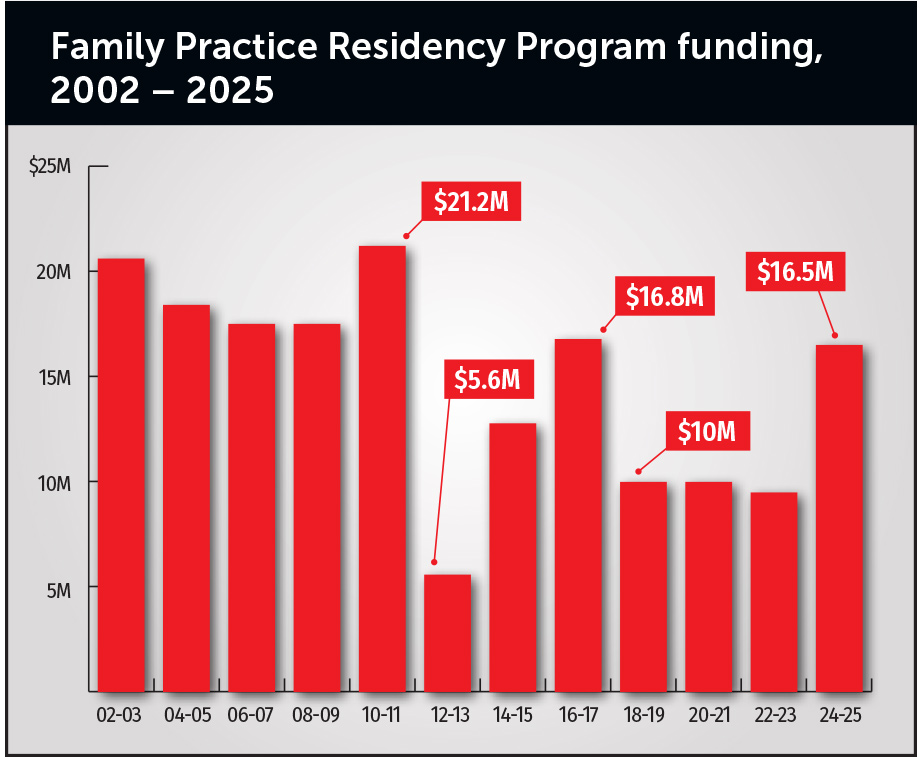Texas budget includes significant investments in primary care and rural physician workforce
Amid threats to rural hospitals, access to maternity care and primary care, Legislature’s efforts to invigorate family medicine means a healthier future for Texas communities
By Jonathan Nelson
Family medicine residency programs and other programs designed to recruit and train primary care physicians will enjoy some extra state funding in the coming biennium as lawmakers included significant investments in rural and primary care this past session.
In a recent statement, TAFP applauded members of the 88th Texas Legislature for taking action that will increase access to comprehensive primary care including crucial mental and behavioral health services across the state.
“As our population grows and ages, we must ensure that all Texans have access to high-quality primary care, and that is most critically important in rural and underserved communities. With these significant investments in supporting our primary care physician workforce, the Texas Legislature has taken great strides in achieving that goal.”
Here are five programs TAFP advocated this session that received new funds.
The Family Practice Residency Program
The FPRP is a strategy in the budget under the Texas Higher Education Coordinating Board designed to increase access to primary care by providing direct funding to family medicine residency programs. The program, which has suffered from inconsistent funding for the past seven budget cycles, received a 73.7% increase to $16.5 million for the coming biennium.
View the FPRP funding history in two charts
The Physician Education Loan Repayment Program
The PERLP pays up to $180,000 of student loans for physicians who agree to practice in a Health Professional Shortage Area in Texas for four consecutive years. The program received a 20.3% increase to $35.5 million for the biennium. Applications for the program were frozen when demand outpaced available funds, but as a result of the infusion of funding, the Texas Higher Education Coordinating Board announced this week that they have reopened the application process.
The Texas Primary Care Preceptorship Program
The TPCPP aims to increase student interest in primary care by placing first- and second-year medical students in primary care practices for two- to four-week rotations. It received a 70% increase to $4.85 million for the biennium.
The Rural Resident Physician Grant Program
The RRPGP will award grants for the creation of new graduate medical education positions in rural and nonmetropolitan areas. This new program will get $3 million for its initial biennium.
The Joint Admission Medical Program
JAMP seeks to recruit economically disadvantaged undergraduate and high school students to pursue careers in medicine by offering scholarships, internships, mentorship, and other support. It received a 20.6% increase to $11.7 million for the biennium.


